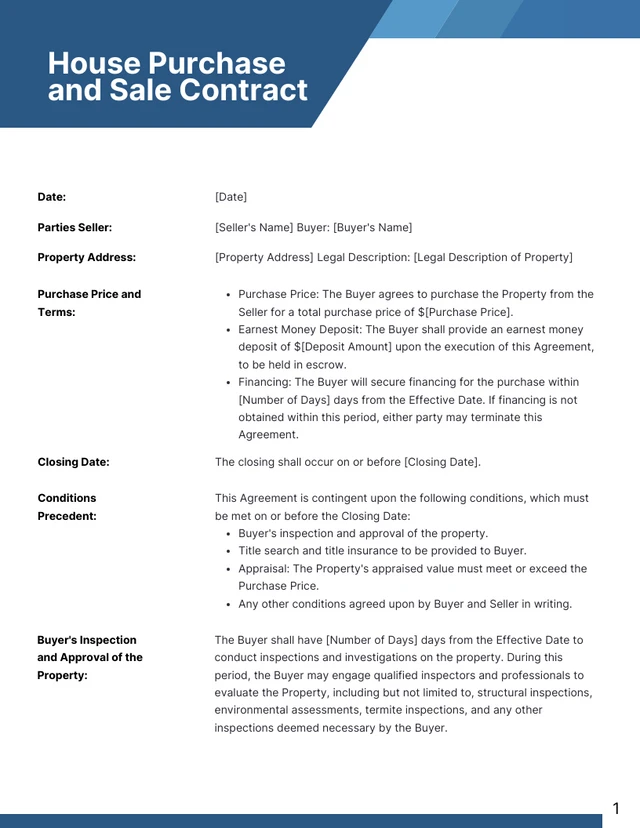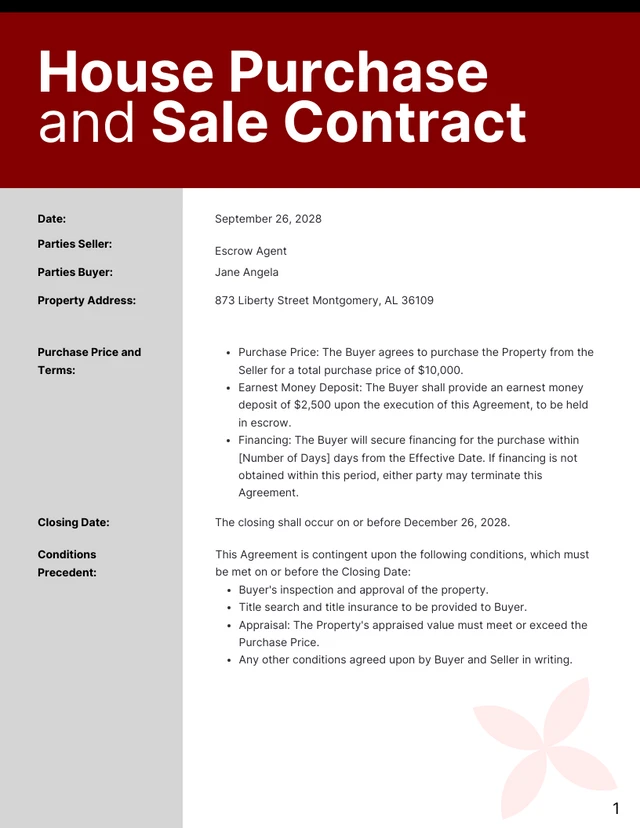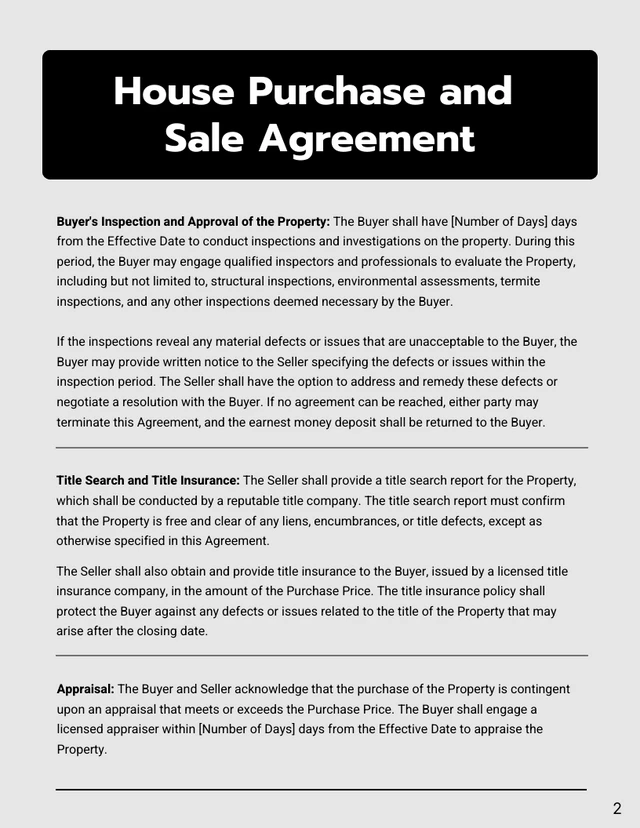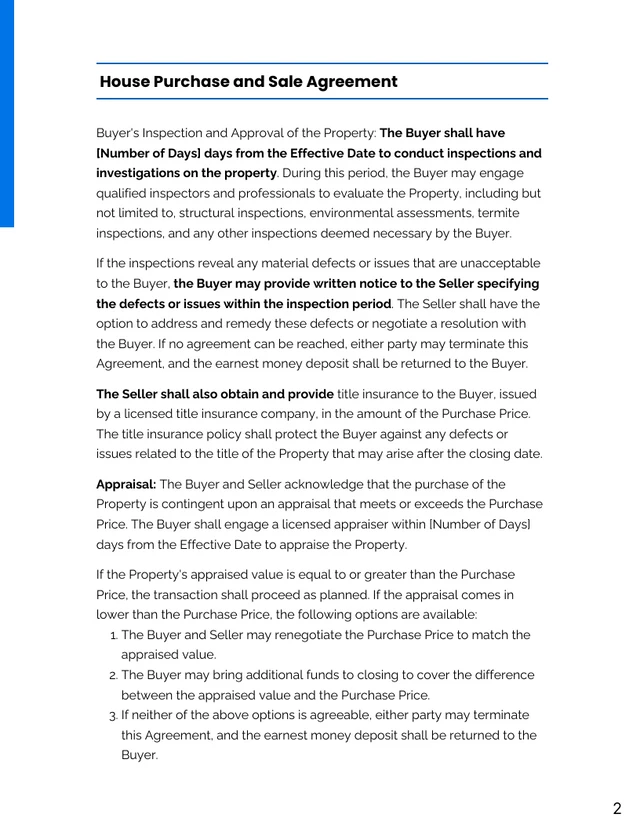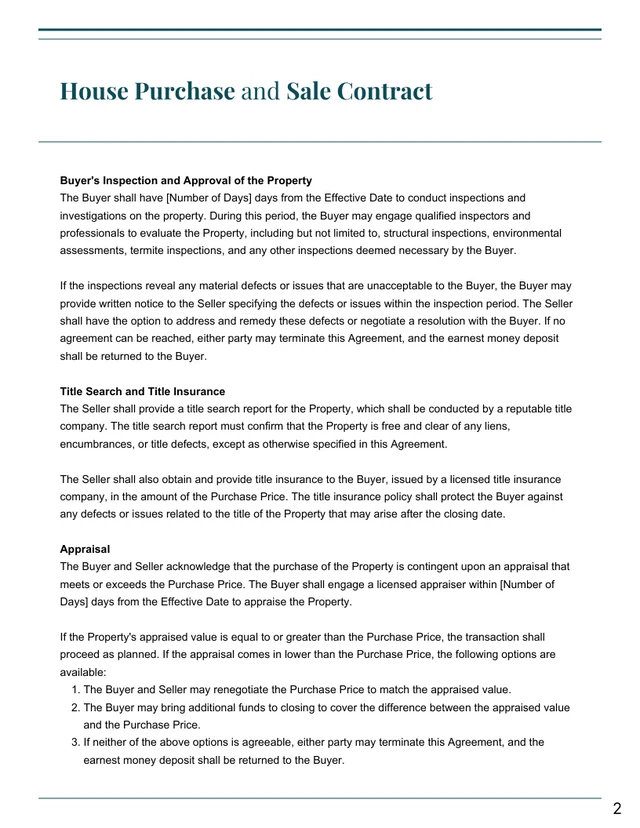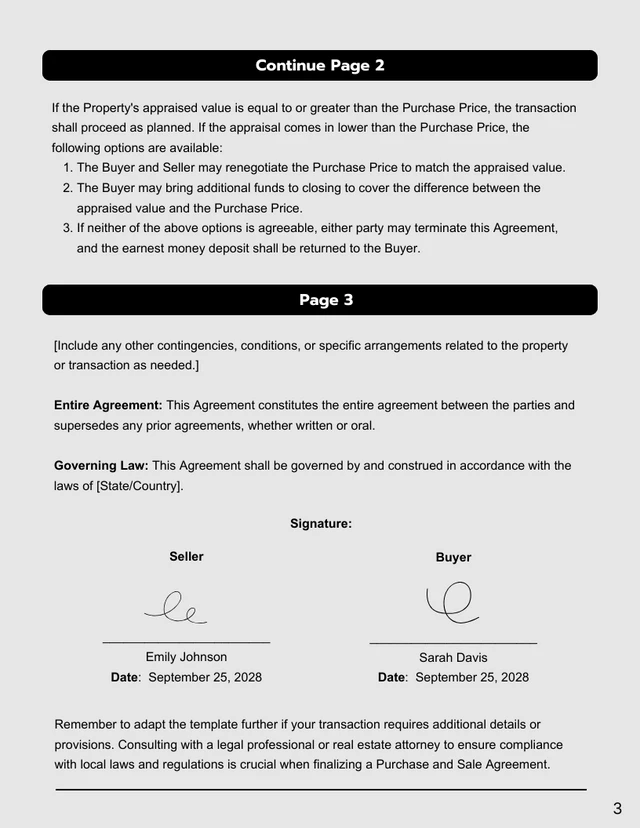
Owning land or property is a dream of many and if you’re one of the few able to realize it, you’ll need to sign a land purchase agreement form to make it official.
But what exactly is a land purchase agreement form? And how do you create one?
Fear not as I’ll teach you all there is to know about land agreement purchase forms using examples in this blog.
Hint: You can use our Online Contract Maker to make land purchase agreement forms or edit one of our professionally-designed purchase and sale contract templates (no design skills required).
Click to jump ahead:
- What is a land purchase agreement?
- Land purchase agreement vs. installment land contract
- Understanding land value
- Writing a bulletproof land purchase agreement
- Land purchase agreement sample
- Supplemental forms
- Land purchase agreement FAQs
What is a land purchase agreement?
A land purchase agreement is a legally binding document that makes it clear who is buying land (and/or property) and how much they’ll pay for it.
These agreements also include a timeline of when conditions should be met.
Here’s an example of a house purchase and sale contract template that can be adapted as a contract for a land purchase agreement.
It includes all the essential sections you need — date, parties involved, address, purchase price and terms, and closing date.
Why should I use a land purchase agreement?
You should use a land purchase agreement to set expectations and protect your rights.
Here are the reasons why you should use land purchase agreements whether you’re a land buyer or seller.
Buyer:
- Provides transparency: Since land purchase agreements outline details such as purchase price, payment schedule, and contingencies, it prevents surprises down the line.
- Protects your rights: Land purchase agreements ensure buyers are informed about all conditions before purchase to safeguard their interests.
Seller:
- Offer legal protection: Land purchase agreements are legally binding documents that can be enforced in court, providing the seller with a foundation to protect themselves if disputes arise.
- Minimizes disputes: Since land purchase agreements state each condition that must be met, it protects sellers from potential issues.
When do I need a land purchase agreement?
You need a land purchase contract to ensure a smooth and legally protected transaction. Here a few scenarios where these agreements make sense.
- Complex deals: If you’re purchasing land that’s part of a development project, a land purchase agreement ensures every aspect is clear.
- Owner financing: If traditional financing isn’t an option, land purchase agreements allow you to make an agreement directly with the seller.
Land purchase agreement vs. installment land contract
People often confuse a land purchase agreement with land contracts, however, they serve different purposes.
What is an installment land contract?
An installment land contract is an agreement where the buyer makes regular payments to the seller until the total purchase price is paid off.
It differs from a regular purchase agreement where buyers put down a deposit and then finance the remaining cost via a mortgage.
Land purchase agreement or installment land contract: which is right for me?
Making a decision as big as buying is already daunting. You don’t want to add to the stress by trying to figure out what type of agreement to purchase under.
A good rule of thumb is to assess your personal circumstances.
Here are some factors to consider when choosing between a land purchase agreement or installment land contract.
- What are your financing needs? If you have a good credit score, you can secure a mortgage so a land purchase agreement makes sense. Otherwise, installment land contracts are better.
- What’s your risk tolerance? Installment land contracts come with risks and if you can’t keep up with payments, you’ll can money and property.
- What’s your appetite for flexibility?: A land purchase agreement has no room for changes but in a installment land contract, you can discuss interest rates, payment plan and other issues.
Understanding land value
There are several factors that determine the price of land.
- Location: Proximity to amenities and neighborhood quality generally increase land prices.
- Development: Land in developing areas can appreciate significantly as developments progress.
- Size: Larger plots are usually more expensive, but the price per acre often decreases with size.
- Zoning: Land zoned for commercial use typically costs more than residential land due to its higher income potential.
Writing a bulletproof land purchase agreement
If you’re looking to create a land purchase agreement, follow this simple step-by-step guide.
Step 1: Name the parties involved
Start by clearly identify the parties (buyer and seller) involved in the land purchase agreement.
Make sure to include space for their full legal names and contact information and set the agreement date.
Step 2: Describe the property accurately
Accurately describe the property to ensure all parties understand what is being sold.
Make sure to provide an address and details that define the boundaries or size. Also, don’t forget to mention exceptions not included in the sale such as such as rights of way.
Step 3: Include the purchase price and payment terms
In this step, the focus is to define the final purchase price for the property.
But don’t just state a value and leave it at that. Be specific and include details about the down payment and payment schedule (frequency and amounts of payments).
Step 4: State the guarantees
Since buying land or a property can be risky, it’s always a good idea for sellers to state guarantees to ease fears and help buyers proceed with a purchase.
Some guarantees sellers can include in a land purchase agreement form include confirming a title deed to the property and proof of compliance with zoning laws and regulation.
Step 5: Close the deal
The closing process is the final step and where ownership officially changes hands.
To execute this step smoothly, both parties must cooperate to verify the title deed and carry out inspections to assess the property’s condition.
Step 6: Taking possession
Ownership and access rights typically transfer to the buyer after the closing is complete.
The exact timing can vary depending on the terms specified in the purchase agreement, but it generally occurs immediately after closing.
Step 7: Additional considerations
Some additional points (what if scenarios) you can include in your land purchase agreement are inspection and contingency clauses, and default procedures.
Step 8: Sign the dotted line
The importance of signatures cannot be overstated. Both parties must sign the document and in some states, having the agreement notarized is also required to make it legally binding.
Land purchase agreement sample
Let’s look at complete example of a land purchase agreement form.
As with most land purchase agreement forms, this template starts with a section for both the buyer and seller to list their name and details about the property.
The second page contains more detailed information about the property as well as defects and objections about the property.
The last page of the agreement is where parties sign to agree. It can also include a section for a witness to sign and cement the deal.
Supplemental forms
When purchasing land or property, you might require additional documentation to ensure a smooth transfer process.
Some additional documents you might need alongside a land purchase agreement form include:
- Disclosure forms: These detail issues with the property, like lead paint or past flooding.
- Title reports: This checks for any ownership claims on the land besides the seller.
- Surveys: A detailed map of the property boundaries.
Land purchase agreement FAQs:
What is a land purchase option?
A land purchase option is a legal agreement that gives buyers exclusive right to buy a property over an agreed time period and at an agreed-upon price. During this option period, the seller cannot sell the property to anyone else.
What happens when a land contract is paid in full?
When a land contract is paid in full, the seller is legally obligated to transfer the deed of the property to the buyer. This usually involves paperwork updates and recording the transfer with the local government.
Can I sell a land contract?
Some land contracts allow the buyer to sell their rights, but this isn’t always guaranteed.
Is there a difference between residential and commercial agreements?
Yes, there is a difference since residential agreements target properties intended for personal use, such as houses, apartments, or condominiums while commercial agreements only focus on office buildings, retail spaces, or industrial properties.
What happens if I default on payments?
If you default on payments, you face the following consequences: late fees, loss of previous payments, or the seller reclaiming the property. What happens depends on the default provisions mentioned in your contract.
How is land contract interest calculated?
Land contract interest is calculated by determining the interest rate agreed upon in the contract and applying it to the remaining principal balance over the term of the contract.
Who pays property taxes on a land contract?
In a land contract, the responsibility for paying property taxes typically falls on the buyer, although this can vary based on the specific terms outlined in the contract.
Conclusion: Showcase your professionalism with well-designed and appealing land purchase agreement forms
Land purchase agreement forms don’t have to be dry and dull documents that are just good enough to ‘get the job done’.
Instead, creating standout land purchase agreement forms can help instill trust in buyers to close the deal or grow your business grow. Check out our land purchase agreement form templates today and start your journey!





























